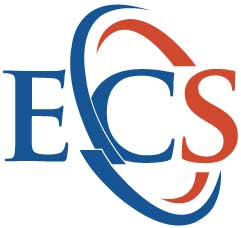IRAs are a great tool to save for major events in your life, such as retirement, college expenses, or a new home. East County Schools has both share and certificates, Roth and Traditional. Stop by a branch to open an account.
IRA Share Accounts
- Similar to a share savings account in that there is a $5.00 deposit requirement to start.
- Additions to the principal can be made at any time, up to the maximum contribution allowed per year by law
- Contribute up to $7,000 per year or $8,000 per year if you are 50 or older for 2024 or 2025.
- Contributions made January 1 - April 15 can be for the current or previous year.
- Dividends are calculated daily and paid monthly.
- No East County Schools FCU penalties for early withdrawal. The Internal Revenue Service does impose penalties for withdrawals prior to age 59½.
RMDs - Required Minimum Distributions. The IRS requires you to begin taking distributions from certain retirement accounts in the year you turn 73. The required begin date is April 1 of the year following the year in which you turn 72. For example, if you turn 72 on September 12, then your RMDs must begin starting on April 1 of the next calendar year.
IRA Share Certificates of Deposits (CDs)
- 3-month to 60-month certificates are available.
- Minimum purchase amounts of $1,000 or any amount above this minimum.
- "Maturity sensitive," generally paying higher Dividend Rates for those with longer maturities.
- Certificates automatically renew at maturity unless you indicate otherwise.
- East County Schools FCU imposes penalties for early withdrawals.
- Terms of up to one year – 30 days of dividends or $25.00, whichever is less
- Terms of greater than one year – 90 days of dividends
All Individual Retirement Accounts are insured to $250,000 by the NCUA (National Credit Union Administration) separately from any other share accounts you may have with East County Schools Federal Credit Union.
Compare Individual Retirement Accounts
| Description | Traditional IRA | Roth IRA |
|---|---|---|
| Adjusted Gross Income Eligibility Restrictions | Almost everyone with earned income may participate | In 2024 Individuals earning $161,000 or less. Married couples earning $240,000 or less. In 2025 these rise to $165,000 or less for individuals and $246,00 or less for married couples. |
| Maximum Annual Contribution 2024 and 2025 | $7,000 (if under age 50) $8,000 (if over age 50) | $7,000 (if under age 50) $8,000 (if over age 50) |
| Non-wage Earning Spousal Contribution 2024 and 2025 | $7,000 (if under age 50) $8,000 (if over age 50) | $7,000 (if under age 50) $8,000 (if over age 50) |
| Tax Deductibility of Contributions | Up to 100% depending on Annual Gross Income and participation in an employer-sponsored retirement plan. | Cannot deduct |
| Tax treatment of dividend earnings | Grow tax-deferred until withdrawn | Grow tax-free |
| Taxes Upon Withdrawal | Withdrawals of contributions and dividend earnings are taxed as ordinary income at the then current tax bracket | None |
| Withdrawal Restrictions | Currently, most withdrawals before age 59½ result in IRS penalties. Some exceptions are made for catastrophic medical expenses or disability. The new law allows for early penalty-free withdrawal for first-time home purchases and/or college expenses. | IRS penalty-free withdrawal after age 59½, so long as the money has been in the account for five years. Penalty-free and tax-free withdrawals prior to age 59½ if the funds are used for disability or first-time home purchase. The five-year-in-the-account rule applies. |
| Age at which RMD withdrawals must begin | When you reach age 72 (73 if you reach age 72 after Dec. 31, 2022) | None |
(Does not imply that $7,000 or $8,000 can be contributed to both IRA types. A maximum of $7,000 or $8,000 can be contributed to one or the other -or- split between both.)
Traditional IRAs
- Annual Traditional IRA contribution limits in 2023 are the same as Roth IRAs: You can contribute $6,500 a year if you're under 50, or $7,500 if you're 50 or older.
- In 2024, the annual contribution limit for both Roth and traditional IRAs rises to $7,000 for those under 50, and $8,000 for those 50 and above.
- To contribute to a Roth IRA, single tax filers must have a modified adjusted gross income (MAGI) of less than $153,000 in 2023. In 2024, the threshold rises to $161,000.
- If married and filing jointly, your joint MAGI must be under $228,000 in 2023. In 2024, the threshold rises to $240,000.
- IRS penalty-free withdrawals are allowed prior to age 59½ when the funds are used for first-time home purchases (up to a lifetime limit of $10,000) and/or higher education expenses.
Roth IRAs
- The Roth IRA, like the Traditional IRA, allows you to contribute $6,500 a year if you're under 50, or $7,500 if you're 50 or older for 2023. In
2024, the annual contribution limit for both Roth and traditional IRAs
rises to $7,000 for those under 50, and $8,000 for those 50 and above. Income limits also apply.
- Contributions to a Roth IRA are not tax-deductible.
- Your eligibility to contribute to a Roth IRA is not dependent on whether you are covered by a retirement plan at work.
- Dividends grow tax-free.
- Withdrawals of both contributions and earned dividends are tax-free after age 59½, as long as the money has been in the account for five years.
- Tax-free distributions from the Roth IRA are permitted prior to age 59½ for disability and/or first-time home purchases (up to a lifetime limit of $10,000), as long as the money has been in the account for five years.
- Unlike Traditional IRAs, the Roth IRA allows you to make contributions after the age of 70½.
- The Roth IRA does not require mandatory minimum distributions once you reach age 70½. After the death of the owner; however, beneficiaries of a Roth IRA are subject to the RMD rules.
- Converting Traditional IRAs to a Roth IRA:
- You can convert your Traditional IRAs to a Roth IRA, using special rules developed by the IRS.
- The transferred amount is subject to income tax, but is exempt from IRS early withdrawal penalties.







